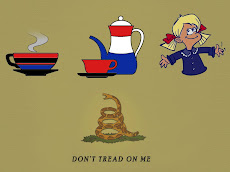Mar 26, 7:32 AM (ET)
By TOM BREEN
CHARLESTON, W.Va. (AP) - Want government assistance? Just say no to drugs.
Lawmakers in at least eight states want recipients of food stamps, unemployment benefits or welfare to submit to random drug testing.
The effort comes as more Americans turn to these safety nets to ride out the recession. Poverty and civil liberties advocates fear the strategy could backfire, discouraging some people from seeking financial aid and making already desperate situations worse.
Those in favor of the drug tests say they are motivated out of a concern for their constituents' health and ability to put themselves on more solid financial footing once the economy rebounds. But proponents concede they also want to send a message: you don't get something for nothing.
"Nobody's being forced into these assistance programs," said Craig Blair, a Republican in the West Viginia Legislature who has created a Web site - notwithmytaxdollars.com - that bears a bobble-headed likeness of himself advocating this position. "If so many jobs require random drug tests these days, why not these benefits?"
Blair is proposing the most comprehensive measure in the country, as it would apply to anyone applying for food stamps, unemployment compensation or the federal programs usually known as "welfare": Temporary Assistance for Needy Families and Women, Infants and Children.
Lawmakers in other states are offering similar, but more modest proposals.
On Wednesday, the Kansas House of Representatives approved a measure mandating drug testing for the 14,000 or so people getting cash assistance from the state, which now goes before the state senate. In February, the Oklahoma Senate unanimously passed a measure that would require drug testing as a condition of receiving TANF benefits, and similar bills have been introduced in Missouri and Hawaii. A Florida senator has proposed a bill linking unemployment compensation to drug testing, and a member of Minnesota's House of Representatives has a bill requiring drug tests of people who get public assistance under a state program there.
A January attempt in the Arizona Senate to establish such a law failed.
In the past, such efforts have been stymied by legal and cost concerns, said Christine Nelson, a program manager with the National Conference of State Legislatures. But states' bigger fiscal crises, and the surging demand for public assistance, could change that.
"It's an example of where you could cut costs at the expense of a segment of society that's least able to defend themselves," said Frank Crabtree, executive director of the West Virginia chapter of the American Civil Liberties Union.
Drug testing is not the only restriction envisioned for people receiving public assistance: a bill in the Tennessee Legislature would cap lottery winnings for recipients at $600.
There seems to be no coordinated move around the country to push these bills, and similar proposals have arisen periodically since federal welfare reform in the 1990s. But the appearance of a cluster of such proposals in the midst of the recession shows lawmakers are newly engaged about who is getting public assistance.
Particularly troubling to some policy analysts is the drive to drug test people collecting unemployment insurance, whose numbers nationwide now exceed 5.4 million, the highest total on records dating back to 1967.
"It doesn't seem like the kind of thing to bring up during a recession," said Ron Haskins, a senior fellow at the Brookings Institution. "People who are unemployed, who have lost their job, that's a sympathetic group. Americans are tuned into that, because they're worried they'll be next."
Indeed, these proposals are coming at a time when more Americans find themselves in need of public assistance.
Although the number of TANF recipients has stayed relatively stable at 3.8 million in the last year, claims for unemployment benefits and food stamps have soared.
In December, more than 31.7 million Americans were receiving food stamp benefits, compared with 27.5 million the year before.
The link between public assistance and drug testing stems from the Congressional overhaul of welfare in the 1990s, which allowed states to implement drug testing as a condition of receiving help.
But a federal court struck down a Michigan law that would have allowed for "random, suspicionless" testing, saying it violated the 4th Amendment's protections against unreasonable search and seizure, said Liz Schott, a senior fellow at the Center on Budget and Policy Priorities.
At least six states - Indiana, Massachusetts, Minnesota, New Jersey, Wisconsin and Virginia - tie eligibility for some public assistance to drug testing for convicted felons or parolees, according to the NCSL.
Nelson said programs that screen welfare applicants by assigning them to case workers for interviews have shown some success without the need for drug tests. These alternative measures offer treatment, but can also threaten future benefits if drug problems persist, she said.
They also cost less than the $400 or so needed for tests that can catch a sufficient range of illegal drugs, and rule out false positive results with a follow-up test, she said.
(So what are your thoughts. VN8)




9 comments:
I agree 100%. Test them.
The 1996 Welfare Reform Act gave states the authority to test. There has been a battle in the courts as to whether or not it constitutes a violations of the fourth amendment. Michigan imposed drug testing for welfare recipients but I believe the courts put a stop to the program. The Michigan results were telling though. One would assume that welfare recipients would be more likely to test positive for drugs than society as a whole but that wasn't the case. The percentage of people applying for welfare who tested positive for drugs was roughly the same as those who test positive for drugs in the society as a whole. I don't have time to go through all the court cases to see where this issue stands currently as far as constitutionality. But, just for the sake of discussing this let's say that it's constitutional and that we're not worried about the right to privacy.
So if we say fine, were going to be serious and crack down on drugs. No one that receives a benefit, service or entitlement from the government shall receive such benefits if tested positive for drugs. Let's test people applying for welfare and unemployment. Anyone that wants to drive on a public street and is applying for a drivers license or auto tag must past a drug test. If they don't pass the test, they go to jail and lose the drivers license and car tag. If someone comes into a hospital with a catastrophic injury and illness and they have no health insurance and no $50K in cash and require free assistance, give them a drug test and see if they qualify for treatment. If someone wants the police to investigate a robbery or crime, drug test their hair and see if they've smoked a joint in the last 90 days. If they test positive then it's tough luck. You don't get police protection or a tax funded investigation into your crime. Yes, all extreme but you get the point. If they want to test welfare folks for drugs then fine. I won't be getting in the way or getting overly concerned about it. But if you want my opinion, it's a violation of the fourth amendment rights under the United States Constitution and it would increase crime and have the opposite of the intended results. Just my opinion. It's a good one to ponder and discuss and there are a lot of angles to look at this issue from. Good post and good question VN8. Now it's your turn. What do you think?
On my way to work where I earn my own money and I do not TEST! I'll get back to you on this didn't have time to read all of your argument but I don't see how a driver's license or a tag is a government handout? Come again. VN8
I'm with you FD! Thanks for stopping by! VN8/BB
As I said, those are extreme examples but they make a point. Once the genie is out of the bottle and testing for a government service is ruled constitutional by the courts then the same practice can be implemented in all sorts of situations. If it's constitutional to test welfare recipients then it's constitutional to test for any government service. I understand why people want to test welfare recipients but I don't think all of the people who are jumping on the bandwagon have thought this al the way through. If you support testing welfare recipients than you need to be prepared to offer up a sample of hair for a 90 drug test yourself at some point in the future. Sure that sounds crazy but if you get a hard ass governor and state legislature, I guarantee you would see this used in other applications that would affect you and me. I suspect that lots of the folks on this bandwagon might say fine, I've got nothing to hide so let them test away. I'm just wondering how many people have thought this all the way through and realize there are implications that could reach far beyond welfare testing.
I'm with Jim on this one (God, I can't believe I just wrote that!). I have no problem with the legal or moral aspect of testing, but why stop with welfare recipients? The task would be herculean.
We did random testing in the Army. In theory, every soldier was supposed to be tested at least twice in a year. It worked well and it was absolutely necessary in that population to weed (pardon the pun) out the users. Alcohol, OTOH, also caused some big problems also with the young troops and the system was much more forgiving.
Any time a federal offender sees his probation officer a test is required. Even knowing they'll be tested the dumbasses come in hot.
I have a friend whose brother, in his late 50s, has been arrested multiple times for DUI. He has a court ordered gizmo in his car that requires a breath sample before the car will start. His solution? Buy a small motor scooter that doesn't have to be registered! God, help us!
Lord have mercy, Lee has agreed with Country. LOL Like I said, it's no big deal to me but I'm just afraid we'll all be having to pee in a cup to get a driver's license down the line if we're not careful. Hell it takes all day now.
Word verification: "whiss"
We'll all have to "whiss" in a cup to get our tax refund if we're not careful.
This'll be a great one for the civil libertarians. In the form of referendum, we'd see clearly who is in the majority ... those who are paying and demand accountability, or those with the dipper in their hands.
With all this talk of Ponzi schemes lately, it's pretty easy to see what is gonna happen if the latter group is truly the majority.
Of course I'm in favor of testing. Oh yeah ... I'm biased, too, having served in the military where testing was mandatory. I never feared it, but then I waived many constitutional rights when I agreed to serve. Perhaps the same standard oughtta be applied to those to dip into the public trough.
Be interesting to see how "Euro-ized" we actually are!
Cannoli this topic is kind of interesting to me because I have several friends that vote Republican but claim to be Libertarians at heart. The next time I see them, I think I'll quiz them to see where they stand on this issue. I suspect they're conflicted because most of them are opposed to welfare but they are very protective of their liberties and say they don't want the government snooping around in their lives. Interesting stuff.
Post a Comment